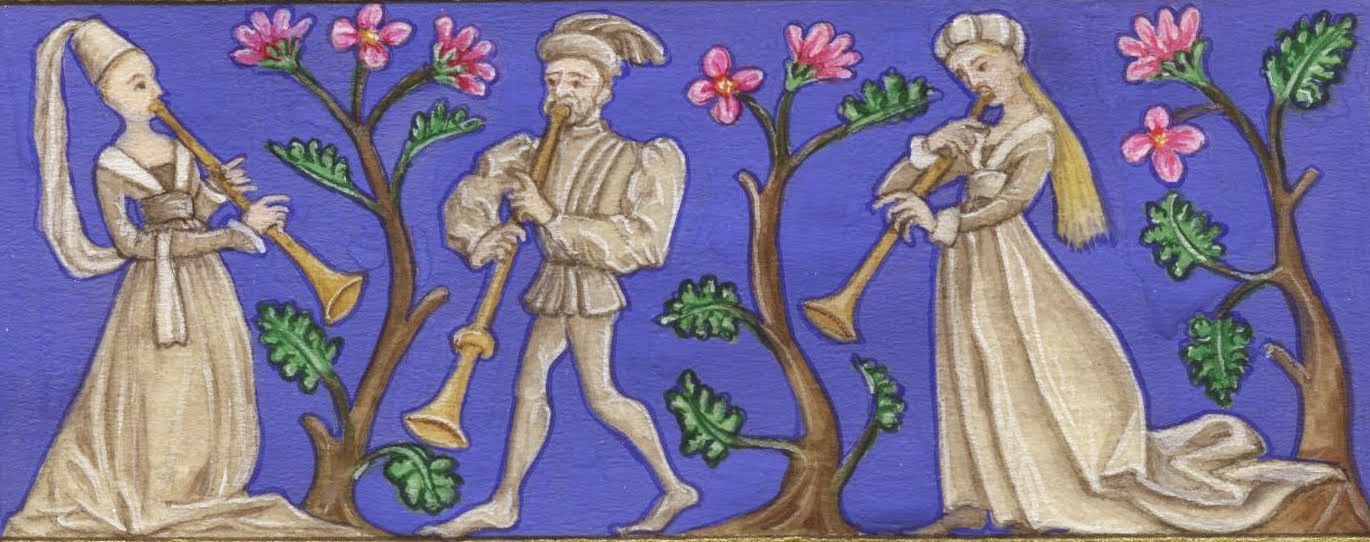The classical canons of rhetoric, from Aristotle and Cicero, are:
- Invention
- Arrangement
- Style
- Memory
- Delivery
Note that 'invention' here does not necessarily correspond to 'composition' in the sense of coming up with something completely new, but is more about how to select your material, or vary it. Similarly 'arrangement' is both about the most effective order of presentation, but also ways to make an effect through alteration of the order. But over the next few posts I'll try to go through each 'canon' to give examples of the ideas they encompassed in classical and medieval thought, and how these might apply to instrumental music performance in particular.
As always with these posts, this will be mostly a matter of setting myself a task to research an idea, and passing along what I find out in terms that I hope some other contemporary 'medieval musicians' might find useful...
